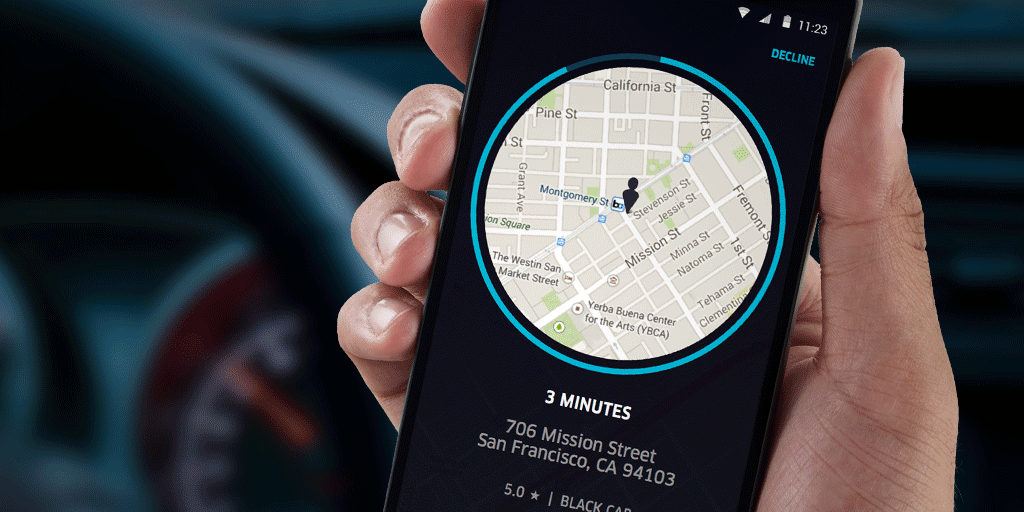Indianapolis, known as the “Amateur Sports Capital of the World”, is home to the National Collegiate Athletic Association and has hosted world championships in swimming, rowing, and basketball. Its sports facilities are anything but amateur and have become the envy of the nation.
Read MoreAn Interview with Zhao Gang, Director General by Laura Benold, Managing Editor, Smart Cities Connect,
Read MoreThe same innovations transforming business are also transforming cities. Rapid advances in technology, including the Internet of Things (IoT), machine learning, Artificial Intelligence (AI) and advanced mobile broadband capacity, can deliver a highly connected, seamlessly automated, data-rich reality.
Read MoreThere is a lot of (understandable) excitement about smart cities. But the task of deploying technology to improve the urban experience can seem like an overwhelming task. Even true believers can find themselves struggling to stay energized.
Read MoreChicago smart city leaders gather for Digi.City Connects at 1871 to talk smart cities, data and how the city is navigating the digital future.
Read MoreWhen it comes to economic metrics, the United States is used to being ranked #1. In 2016, the US Gross Domestic Product (GDP) was $18.6 trillion, seconded only by China at $11.2 trillion followed by Japan, Germany and the United Kingdom. If this premier position brings you comfort, it shouldn’t last long. These numbers measure the past – the production and manufacturing of a tangible product. However, technology moves our world in a different direction. It is less about production and more about the digital economy.
Read MoreWhen you hear the term 'city government' you may think of a bureaucratic monolith instead of hotbed of innovation. But many cities--like Tampa, Denver, Phoenix and San Diego--are transforming themselves and developing new approaches to age-old urban issues while also creating opportunities for entrepreneurs.
Read MoreAmerica is full of companies who leverage their underdog status to sneak up on bigger competitors. Avis (CAR) even made a tagline out of it, "When you're only No. 2, you try harder." In an era where cities are steadily embracing private sector principles, this same adage applies. And thanks to the leveling effect of technology, the gap between historical winners and smaller, more nimble players is quickly narrowing.
Read MoreUber is synonymous with disruption and transportation. What started with ridesharing has expanded to autonomous (driverless) vehicles and even plans for flying cars. Whether you love them or loathe them, there are some important lessons you can learn from the company's journey.
Read MoreChelsea Collier
Cities large and small hold a wealth of problems for entrepreneurs to solve. With the enormous amount of services that cities are responsible for providing--public transportation, utilities, emergency services--observant founders can build businesses that will garner plenty of interest by finding ways to optimize these operations.
Read MoreWhile there may be no such thing as a free ride, thanks to Veniam, there is now free wifi on the ride. Veniam turns vehicles into mobile hotspots while their sensor technology gathers terabytes of valuable data from the physical world. Welcome to the Internet of Moving Things.
Read MoreWhen you compare a city-nation like Singapore to the United States, there are a number of differences, but one is fairly obvious: size. Singapore’s population of 5.8 million is roughly equivalent to that of Wisconsin. The total land area (278 square miles) is about the size of Lexington, Kentucky. In addition, Singapore has an inherent lack of natural resources. These two factors are very real constraints.
Read MoreOrlando’s Chief Information Officer (CIO), Rosa Akhtarkhavari, wants to save lives using connected technology. And as more urban areas across the globe are utilizing data collected from sensors, cameras and devices to become smart cities, Akhtarkhavari and the City of Orlando are working hard to build a smarter Orlando.
Read More“I am the most un-government person in the world,” says Mr. Chan Cheow Hoe who left a successful career with Citibank and Barclays to become theGovernment Chief Information Officer (CIO) and Deputy Chief Executive of Singapore’s GovTech. He oversees GovTech Hive, an innovative digital services agency created to develop deep technical capabilities within the public sector in order to meet the increasing demands of citizens and businesses.
Read MoreWhen Denver Mayor Hancock spoke at Smart City Day at SXSW this year, he voiced a commitment to establishing trust and transparency, serving residents and “meeting them where they are.” City leaders who encourage that way of thinking are already a step ahead. Adding connected technology is the next step to transforming a community into smart city.
Read MoreWhen you search online for images of a city, chances are you'll find pictures of buildings, roads, bridges and lights. It's natural to think of a city in terms of its physical infrastructure. But today, we are in the emergence of a new digital reality in which a city's invisible infrastructure is just as important as the physical.
Read More



















